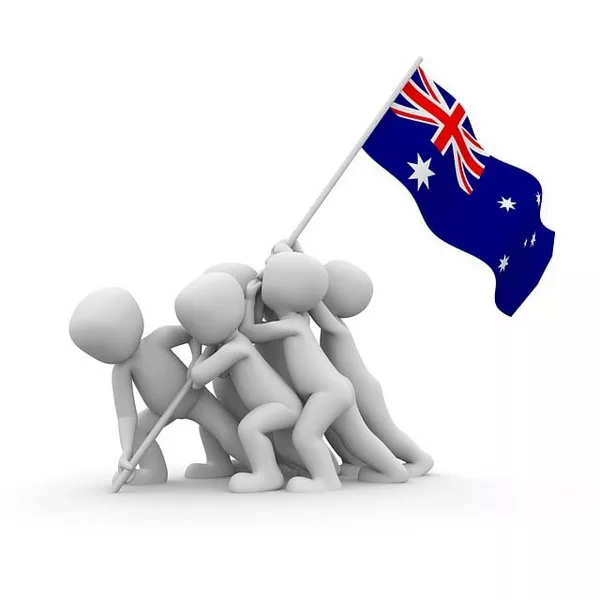Veterans Day is a significant national holiday in the United States dedicated to honoring military veterans who have served in the armed forces. This article explores the origins, evolution, and significance of Veterans Day, tracing its history from its inception to the present day.
The Origins of Veterans Day
The End of World War I
The origins of Veterans Day are closely tied to the end of World War I. On November 11, 1918, an armistice was signed between the Allied Powers and Germany, marking the cessation of hostilities on the Western Front. This date, known as Armistice Day, was celebrated annually in many countries to commemorate the end of the war and honor those who served.
The Armistice Day Observance
The first Armistice Day was celebrated on November 11, 1919, exactly one year after the armistice took effect. The day was marked by a variety of observances, including parades, speeches, and moments of silence. In the United States, Armistice Day was officially recognized as a national holiday by Congress on May 13, 1938.
The Transition from Armistice Day to Veterans Day
Post-World War I and World War II
The observance of Armistice Day continued throughout the 1920s and 1930s. However, as World War II broke out and ended, the scope of the holiday became increasingly complex. The need to honor all American veterans, not just those of World War I, became evident.
The Role of World War II Veterans
By the end of World War II, the number of American veterans had significantly increased. The contributions of veterans from this global conflict, as well as those from World War I, the Korean War, and other military engagements, necessitated a broader commemoration.
The Legislation to Change the Name
The transition from Armistice Day to Veterans Day was spearheaded by a movement to honor all American veterans, not just those who served in World War I. This movement gained momentum in the late 1940s and early 1950s.
On June 1, 1954, President Dwight D. Eisenhower signed Public Law 380, which officially changed the name of the holiday from Armistice Day to Veterans Day. The legislation was passed in response to advocacy from veterans’ organizations, including the American Legion, which had been pushing for a broader recognition of all U.S. military veterans.
The Significance of the Name Change
The name change from Armistice Day to Veterans Day was intended to honor the service of all U.S. military veterans, regardless of the conflict in which they served. The new name reflected a more inclusive approach, acknowledging the contributions of veterans from various wars and peacetime service.
The Evolution of Veterans Day Observances
The Establishment of Veterans Day
Following the name change, Veterans Day was first observed on November 11, 1954. The holiday retained its original significance of commemorating the end of World War I but now encompassed all veterans of the U.S. armed forces.
The Role of the Veterans Administration
In the years following the establishment of Veterans Day, the Veterans Administration (now the Department of Veterans Affairs) played a key role in organizing and promoting observances. The VA’s efforts helped to enhance public awareness and appreciation for the sacrifices made by veterans.
The National Veterans Day Ceremony
One of the central events of Veterans Day is the National Veterans Day Ceremony, held annually at Arlington National Cemetery. The ceremony includes a wreath-laying at the Tomb of the Unknown Soldier and other commemorative activities. This ceremony serves as a focal point for national observances and reflects the solemnity and significance of the holiday.
Veterans Day in Contemporary America
Current Observances and Traditions
Today, Veterans Day is observed across the United States with a variety of events and traditions. These include:
Parades: Many cities and towns hold Veterans Day parades featuring military units, veterans’ organizations, and community groups.
Public Ceremonies: Various public ceremonies and memorial services are held to honor veterans and recognize their contributions.
Educational Programs: Schools and organizations often conduct educational programs to teach students and the public about the history and significance of Veterans Day.
Community and Family Gatherings: Families and communities come together to celebrate and support veterans, often with special meals or gatherings.
The Role of Media and Technology
In the digital age, media and technology play a significant role in Veterans Day observances. Social media platforms, news outlets, and online resources are used to share stories, highlight veterans’ experiences, and promote awareness of the holiday.
The Impact of Veterans Day on American Society
Promoting National Unity
Veterans Day serves as a unifying force in American society, bringing together people from diverse backgrounds to honor a common group of individuals—the nation’s veterans. It fosters a sense of national pride and gratitude for the sacrifices made by those who have served in the armed forces.
Supporting Veterans and Their Families
The holiday also provides an opportunity to highlight the needs and contributions of veterans and their families. It encourages support for veterans’ services, including healthcare, education, and employment assistance.
Encouraging Civic Engagement
Veterans Day serves as a reminder of the importance of civic engagement and participation in the democratic process. It encourages Americans to reflect on their responsibilities as citizens and to support those who have defended their freedoms.
See also: What Is Women’s Rights Day?
Conclusion
Veterans Day has evolved significantly since its inception, reflecting the changing needs and experiences of American veterans. From its origins as Armistice Day to its current status as a comprehensive tribute to all U.S. military veterans, the holiday continues to hold deep significance for the nation.
Understanding the history and significance of Veterans Day helps to appreciate the profound impact that veterans have had on American society. It also underscores the importance of honoring and supporting those who have served in the armed forces, recognizing their contributions and sacrifices with respect and gratitude.

